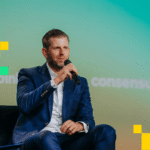On Thursday, OpenAI and Microsoft revealed they have entered into a non-binding agreement aimed at revising their evolving partnership. This announcement marks a significant moment in their collaboration, which has become increasingly intricate as both organizations vie for dominance in the burgeoning artificial intelligence market while also addressing their expanding infrastructure needs.
In their joint statement, the companies noted, “Microsoft and OpenAI have signed a non-binding memorandum of understanding (MOU) for the next phase of our partnership. We are actively working to finalize contractual terms in a definitive agreement. Together, we remain focused on delivering the best AI tools for everyone, grounded in our shared commitment to safety.”
This development occurs against the backdrop of OpenAI’s ongoing transition from a nonprofit to a for-profit entity, a shift that necessitates Microsoft’s endorsement, given that the tech giant is OpenAI’s largest backer, having invested over $13 billion since 2019.
As OpenAI has evolved from being primarily a research lab to a commercially valued enterprise pegged at $500 billion, the partnership has faced mounting stresses. Both organizations are now competing for similar clientele, and OpenAI is reportedly in need of more computational power than Microsoft can currently provide. Complications in their partnership have also arisen concerning contract stipulations, particularly those that would impose limits on Microsoft’s access to OpenAI’s technology upon reaching what is termed artificial general intelligence (AGI). This concept, however, remains somewhat ambiguous and is economically defined by both corporations as achieving AI systems capable of generating at least $100 billion in profit.
Additionally, tensions have been exacerbated by criticism and resistance from various stakeholders. In May, OpenAI chose to halt its initial plans for a full transition to a for-profit model, a decision influenced by mounting pressure from former employees, regulators, and public figures including Elon Musk. Musk has even initiated legal action against OpenAI to prevent this conversion, arguing that it contradicts the organization’s foundational mission as a nonprofit committed to benefiting humanity.
As both companies navigate this multifaceted landscape, the implications of their partnership will continue to be closely watched, particularly as they balance ambitions for innovation with responsibilities to societal values.







